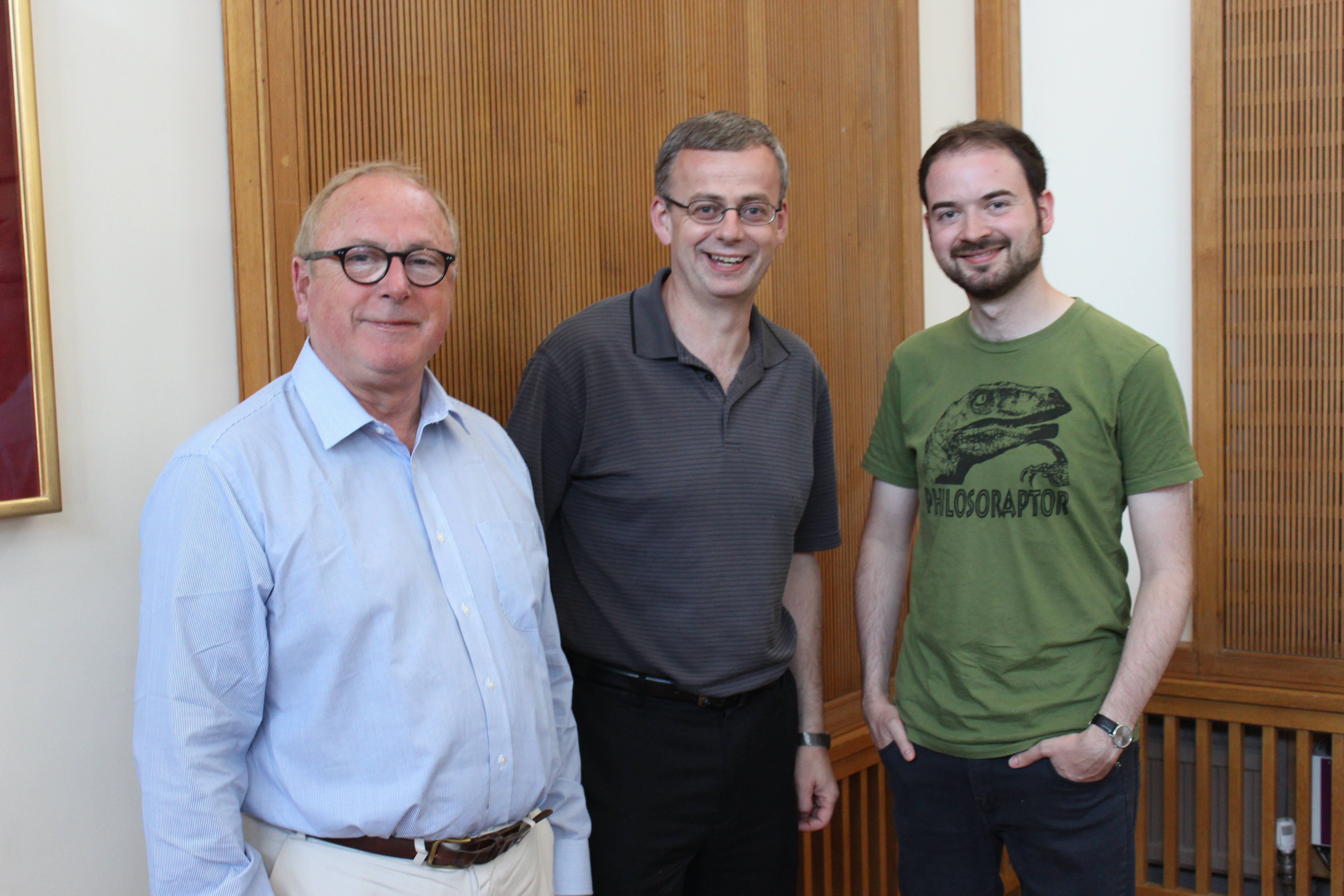Greetings in the name of our risen Lord! I would like to take this opportunity to let you know of some very exciting developments in the EPS.
Last year, the
EPS began a fundraising campaign aimed at (among other things) increased international collaboration between societies of Christian philosophers. Although these efforts are only in their infancy, I am happy to report that they have already borne fruit, and we will be helping four Christian philosophers from Europe to attend our annual meeting in Baltimore. One of these is the chair of the
Philosophy of Religion group of Tyndale Fellowship, Dr. Harry Bunting. Dr. Bunting and
Dr. Daniel Hill, secretary of the group and a lecturer at Liverpool University, have extensive contacts in European philosophy and provided a list of promising young Christian philosophers, from which two outstanding candidates, Joseph Diekemper and Jamie Collin, were selected. It was my privilege to meet Harry, Daniel, Joseph and Jamie during this year’s
Tyndale Fellowship meeting at Wolfson College, Cambridge, July 4th to 6th. How encouraging it was to talk to so many brilliant and promising young scholars, some of them students of such greats as Brian Leftow, E. J. Lowe and Richard Swinburne! It is our mutual hope that this marks the beginning of an ongoing partnership between Tyndale Fellowship and the EPS.

Another European connection we hope to cultivate is with the
European Leadership Forum. Several members of the EPS have participated in the ELF, which has tracks in philosophy, apologetics and science. An important contributor to the ELF is
Dr. Ralph Vaags at the University of Agder, Norway, and we are pleased to announce that we will assist his attendance of the Baltimore conference. These are early days, and I hope to strengthen the connection with ELF during a personal visit next year.
Of course, we would love to do even more, and it is our hope that next year will see even more international collaboration. As our culture shows increasing signs of a post-Christian orientation focused on secularism and alternative religions, it is vital that evangelical Christian philosophers take a leadership role in supporting each other’s work for Christ throughout the globe. In some contexts, the illusion has developed that to be a Christian philosopher is either a curiosity or a danger. Concerted, collaborative efforts and mutual encouragement are therefore vital to show that, on the contrary, Christian philosophy is a growing area of vibrant, rigorous, well-informed inquiry that coherently addresses fundamental questions about what is real, how we know, and how we are called to live.
The EPS website has also been flourishing. Paul Moser’s arresting charge to reform the guild of Christian philosophers has provoked a fascinating series of interchanges on the proper focus of Christian philosophy, the Christ-shaped philosophy project. J. P. Moreland describes the late, great Dallas Willard as one of Christian philosophy’s five-star generals, and though saddened by the loss I am certain Dallas would approve of the constructive tributes and essays that followed. New books also abound and the website is a great place to find out about new and forthcoming works. In addition to our annual meeting, the EPS has several regional meetings, and philosophy students are especially encouraged to take advantage of these to present papers and network with other philosophers.
Let me close by encouraging all of you to pray for the work of the EPS. We would love to see as many of you as possible at our
annual national meeting in Baltimore, November 19-21. It is a great delight to have another “five star general” (or field marshal!) Richard Swinburne, as our plenary speaker, and I know from the program committee that the quality of submitted papers has never been so high or so numerous. I very much look forward to seeing many of you at our annual EPS reception during the conference, and if any of you have ideas about what EPS can do better, do not hesitate to relay them to me.
Blessings on all of your work for Christ’s kingdom, and hope to see you in November!
Angus Menuge, Ph.D.
EPS President

